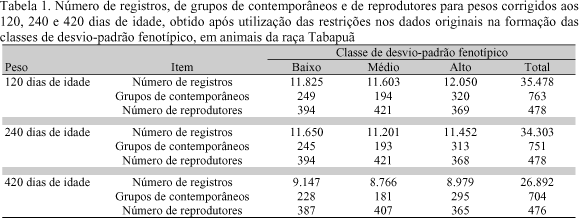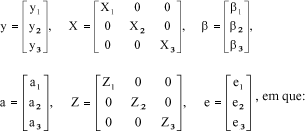Data from Tabapuã beef cattle were used to study the influence of variance heterogeneity on genetic evaluation. Adjusted weights at 120, 240 and 420 days of age were classified in three classes of standard deviation: low (<14.9kg), medium (14.9 to 18.9kg) and high (>18.9kg), based on phenotypic standard deviation of the weight at 120 days of age of the contemporary groups. Multiple trait analyses, considering each class of phenotypic standard deviation as a distinct trait, were performed. The genetic and residual variances increased as the phenotypic standard deviation of the class increased. Heritabilities for low, medium and high phenotypic standard deviation classes were 0.26, 0.32 and 0.37 (weight at 120 days), 0.28, 0.35 and 0.35 (weight at 240 days) and 0.14, 0.18 and 0.18 (weight at 420 days), respectively. Genetic correlations between the same weight, in low and high phenotypic standard deviation classes were lower than 0.80. The correlation between the breeding values, obtained from multiple trait analyses, and from general analyses (without classes), were greater than 0.93. It was observed that sires would be classified in similar way considering or not considering the heterogeneity of variances in the analyses.
genetic-environment interaction; genetic parameters; heterogeneity of variances; variance components











